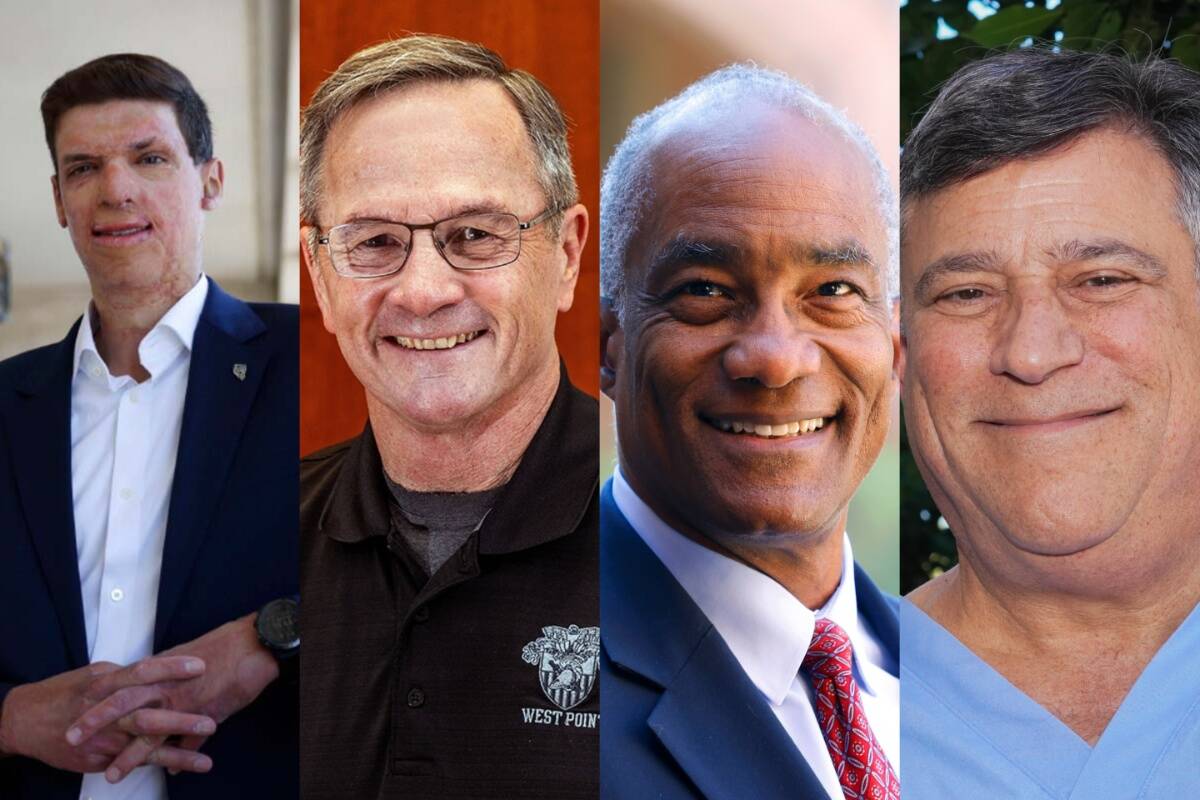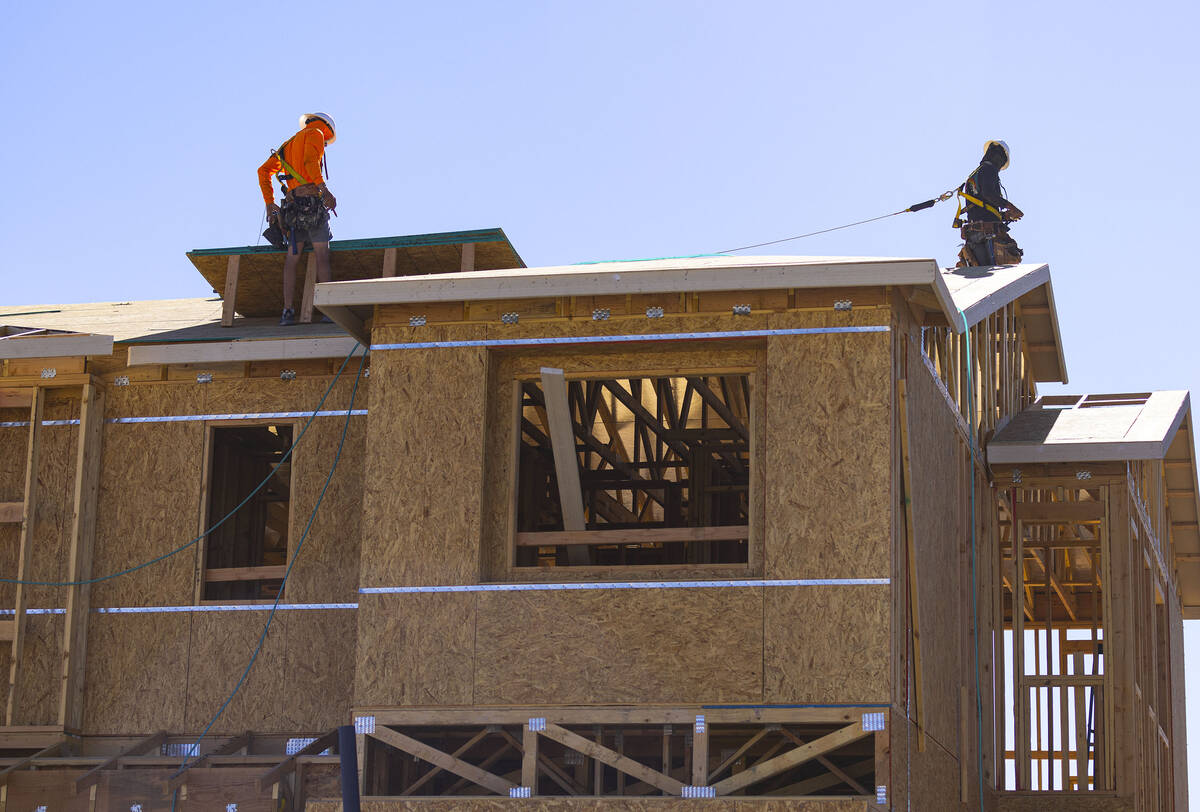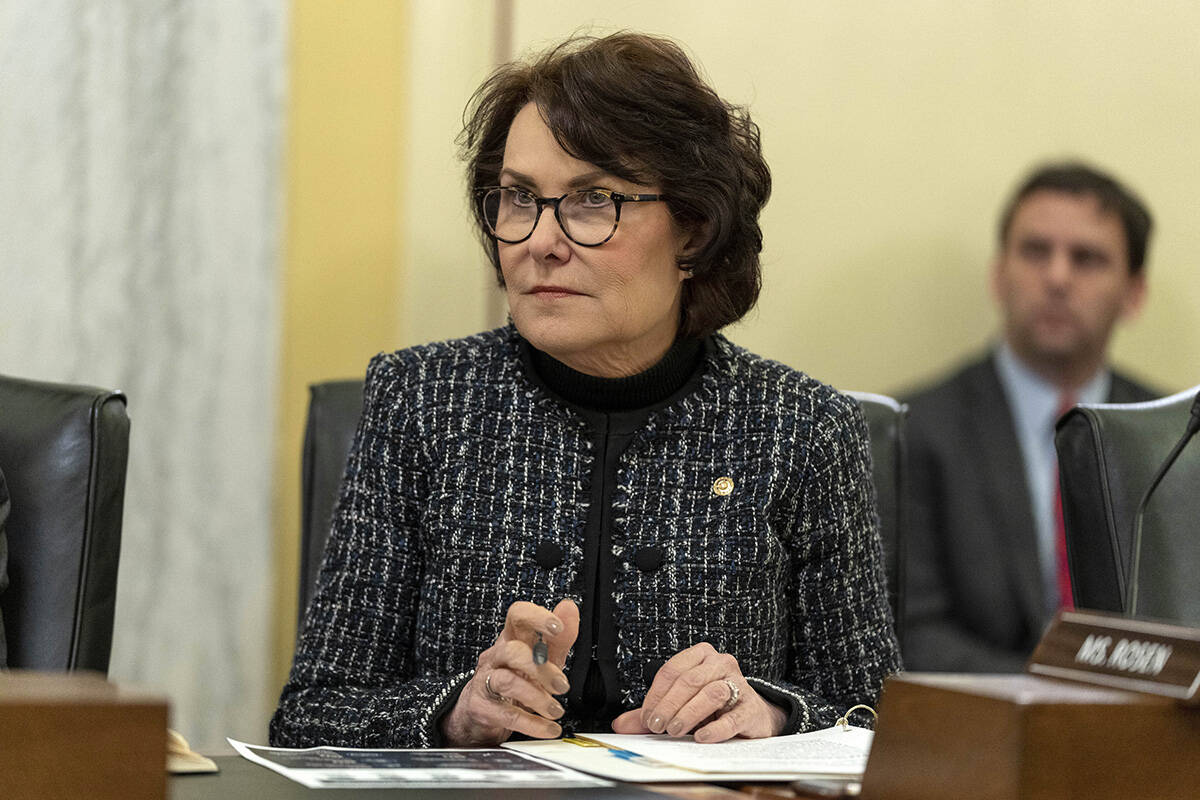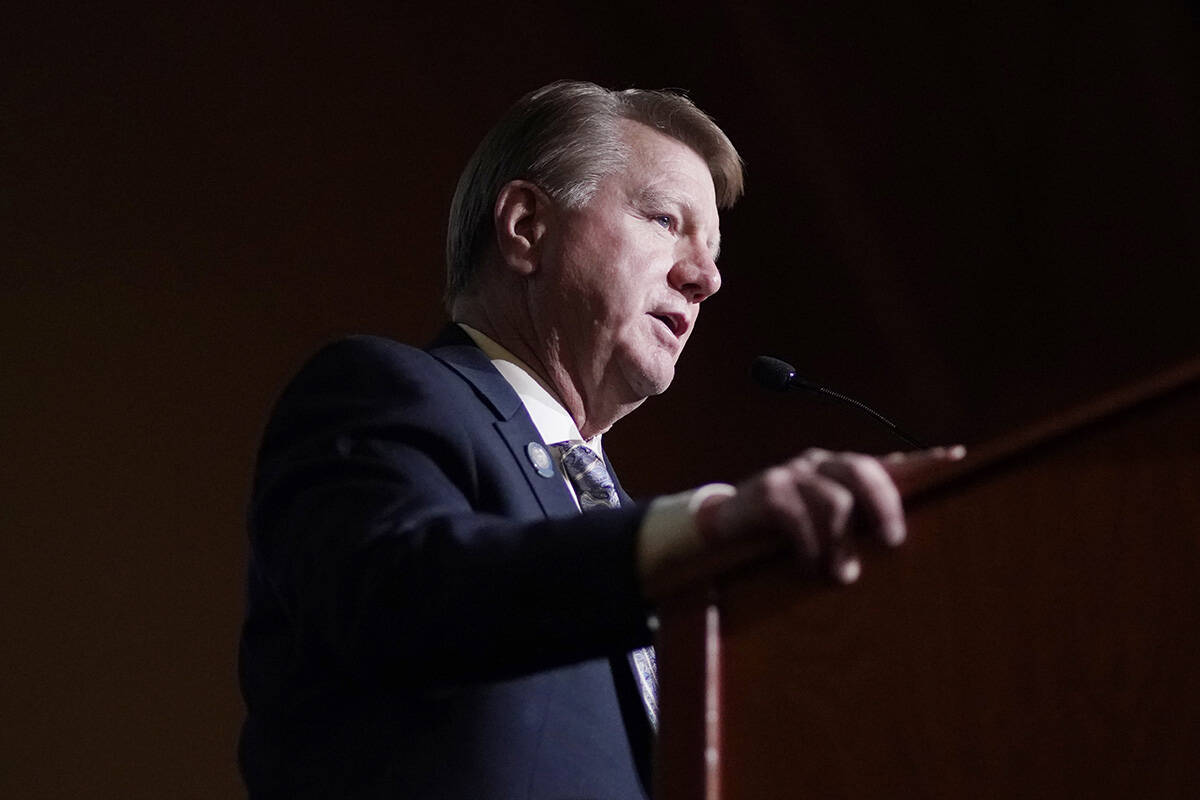We asked GOP Senate candidates how they plan to fix the economy. Here’s what they said.
Nevada residents are paying more for groceries than residents of almost any other state, and home prices continue to rise. The state’s unemployment rate continues to be one of the highest in the country, and inflation increased by 9 percent between May 2020 and June 2022.
But the state’s labor force is growing, its unemployment rate is slowly decreasing, and the inflation rate has dipped from 9 percent to 3.2 percent in February 2024.
With less than eight months to go until the November general election, Republicans are stressing what they consider the economic shortcomings of the Biden administration and placing blame on Democrats and President Joe Biden’s policies for the high costs of living, while Democrats play defense and highlight efforts made to lower costs and support families.
The economy is expected to be the No. 1 issue for voters in the November general election; both major parties are already working to highlight their own records — and the other side’s shortcomings, according to Dan Lee, a UNLV political science associate professor.
In Nevada’s highly contested Senate race, where Democratic Sen. Jacky Rosen’s seat is vulnerable, a large field of Republican candidates are vying for their party’s nomination June 11. The Review-Journal asked candidates through a questionnaire what actions they would take to lower inflation and improve the cost of living in the U.S., if elected to the Senate.
Sam Brown
The likely Republican nominee Sam Brown said Nevada families are struggling under President Joe Biden and Rosen’s “American Nightmare,” and he will work to restore the “American Dream.”
“I will be a champion for fiscal responsibility, spending accountability, permanent tax relief, energy independence and security, and returning power back to state and local governments,” said Brown, a Reno resident, in a statement to the Las Vegas Review-Journal.
Tony Grady
Tony Grady, a retired lieutenant colonel in the Air Force living in Reno, said he has a unique skillset to solve economic problems through his management of military budgets and his own company. He would make the country more energy independent and create “pro-growth policies” to stimulate the economy.
Jim Marchant
Former Assemblyman Jim Marchant said he would work to lower taxes, decrease spending, and reduce burdensome business regulations and bring manufacturing to the country. He would also increase the production of low-cost energy by encouraging the deployment of walk-away safe small nuclear reactors, which require no operator actions during natural disasters or threats.
Jeff Gunter
Jeff Gunter, former U.S. ambassador to Iceland under the Trump administration, who recently committed to a large ad buy before the June 11 primary, did not return a completed questionnaire to the Review-Journal. Another candidate, Gary Marinch, could not be reached.
Gunter previously said his priority was growing the economy and lowering inflation. He would like to see Nevada become a hub for education and medical research, and see more money invested in the medical communities in Nevada, he said during a previous interview with the Review-Journal.
Garn Mabey Jr., a Las Vegas obstetrician-gynecologist and former state assemblyman, said social security, Medicare and Medicaid are the largest parts of the federal budget and are growing at an unsustainable pace. He would support a bipartisan bill that would “stabilize” those programs.
“Both candidates for president state they won’t support any change in these programs, but unless we do, there will be automatic reductions which will be very harmful to many of our citizens,” he said.
Stephanie Phillips, a real estate broker, said she wants to audit federal departments to find wasteful spending and use that money to help homeless veterans and feed children and rescue them from sex slavery.
Ronda Kennedy, an attorney living in Las Vegas, said she would start by bringing manufacturing back to the United States by incentivizing manufacturing. She would also look at where the government can cut regulation costs to small to medium-size businesses.
“Small businesses are the backbone of this country and unfortunately, we killed small businesses during Covid, and therefore essentially destroyed the middle-class,” Kennedy said.
Bill Conrad, a retired U.S. Army lieutenant colonel, said he would end the “Fed” and focus on fiscal and monetary policies that balance the budget and targeted measures to assist households and businesses.
Barry Lindemann, an asset manager, will also work to remove cumbersome regulations in business to allow market forces to thrive in a free market. He would also propose that new businesses be alleviated from paying income tax for its first five years and would look at the country’s energy policy as a market issue rather than an industry one.
“We need to define an energy policy that curtails our negative exposure to the whims of foreign sources of oil,” he said. “We need not drill more wells; we need to sell more oil at home. Those steps should drive down fuel prices and in turn costs should drop shortly after.”
Eddie Hamilton, a longtime political candidate who lives in Henderson, said he would implement his plan called “EddyNOMICS,” which aims to alleviate “Bidenflation.” He would obtain federal permits on federal land in Eastern Nevada counties for oil and gas, would build 400,000 small housing units with “Ikea-sized 600 square feet homes or high rise dormitory-type housing,” and would remove restrictive local zoning regulations that demand large houses, he said.
Vincent Rego, a driver in Las Vegas, said he would aim to bring back jobs to the United States. He also proposes temporarily freezing cost-of-living adjustments and stabilizing minimum wage.
Contact Jessica Hill at jehill@reviewjournal.com. Follow @jess_hillyeah on X.
Correction: An earlier version of this report misstated Ronda Kennedy’s occupation.


























